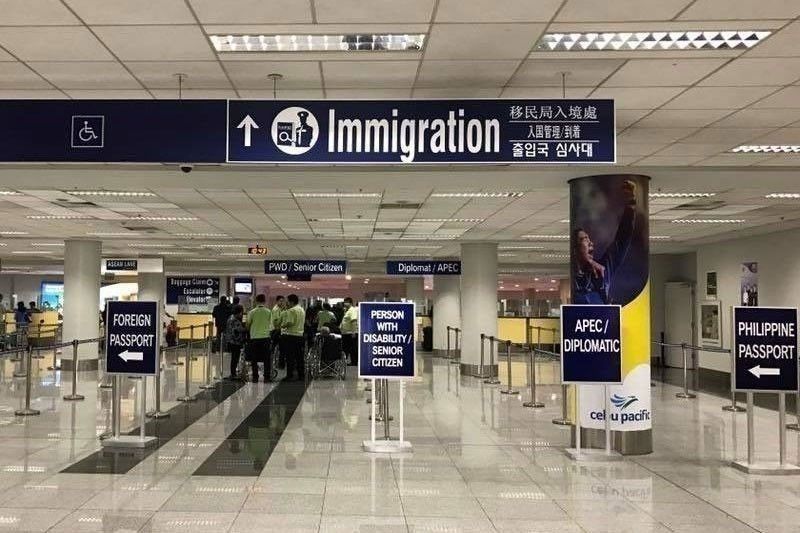BI backs DFA on stricter visa controls for Chinese

MANILA, Philippines — The Bureau of Immigration (BI) supports the Department of Foreign Affairs (DFA)’s plan to implement stricter rules for the issuance of tourist visas to Chinese nationals.
The DFA cited cases of fraudulently acquired visas and crimes related to Philippine offshore gaming operators (POGO).
“This is a welcome development for the BI,” Immigration Commissioner Norman Tansingco said yesterday.
“We project that there will be fewer exclusions, given that arriving tourists have been better filtered during their visa applications at the Philippine posts abroad,” he added.
The DFA’s move would provide another strong layer of protection against foreigners who might have intentions inimical to state security, he noted.
Based on BI data in 2023, 3,359 foreigners were denied entry. A majority had questionable purposes for travel and were tagged as likely to become a public charge.
Of the number, 885 were citizens of China.
Based on previous news reports, there have been instances wherein POGOs were linked to crimes such as human trafficking, forcible abduction, homicide, illegal detention, kidnap-for-ransom, theft, robbery-extortion, serious physical injuries, swindling and grave coercion.
Tansingco believes that stricter visa issuance would have little impact on the country’s tourism.
“The move is really just filtering out those undesirables that are trying to enter the country. Regular tourists need not be worried,” he added.
In 2023, the BI said Chinese nationals were the fifth largest group of foreign tourists in 2023 with 246,179 tourist arrivals.
Ahead in the list were South Koreans with 1,467,051 arrivals, followed by Americans, Japanese and Australians.
Chinese students
Amid the reported influx of Chinese students in the country, the BI requested the Commission on Higher Education (CHED) to call for a high-level meeting of agency members to clarify the role of each agency in permitting foreigners to study in the country.
The Inter-Agency Committee on Foreign Students (IACFS) is scheduled to meet today to discuss the matter.
“We have requested the high-level meeting to reiterate our previous requests for immediate joint inspections and for it to become a regular conduct by the IACFS given new developments in national security concerns,” Tansingco said.
The IACFS is chaired by CHED and member-agencies include the BI, National Bureau of Investigation (NBI), National Intelligence Coordinating Agency (NICA), the DFA and Department of Education.
“We will (be) supporting (the) security assessments of NBI and NICA by providing (them with) the initial data that can be used for investigations,” Tansingco noted.
The BI made the request after Congress called for a probe on the number of Chinese students in Tuguegarao, Cagayan.
After reviewing its records, the BI found that 1,516 Chinese were allegedly granted student visas in Cagayan and all were endorsed by an undisclosed university.
As of April, the BI noted that only 485 are currently enrolled, with only 96 onsite with student visas.
In 2023, the BI issued 24,189 student visas to various nationalities, with 16,190 issued to Chinese nationals nationwide. A majority of them are in the National Capital Region.
Visa control
Cagayan de Oro City 2nd District Rep. Rufus Rodriguez yesterday urged the DFA to impose stricter visa controls on Chinese nationals, whether they are students or POGO workers.
“I am urging the DFA and our diplomatic posts in China to apply these stricter rules on all China’s nationals applying for whatever type of visa, whether they are businessmen, tourists, workers, or students,” he said.
The country must “be on the lookout for Trojan horses among them,” said Rodriguez, a former immigration commissioner during former president Joseph Estrada’s time.
POGOs and Chinese students enrolled in Cagayan schools have been suspected of spying for the Chinese military, Rodriguez noted.
He also urged the DFA, BI and CHED to conduct an inventory of Chinese students in Cagayan, Isabela, Nueva Vizcaya, the Cordillera Administrative Region and other parts of the country amid conflicting reports on their number.
CHED should probe if there is a pattern of Chinese students migrating to areas near Enhanced Defense Cooperation Agreement sites, he said.
Meanwhile, Cagayan 3rd District Rep. Joseph Lara said the influx of Chinese students began after the government identified a naval base in Sta. Ana town in Cagayan as an additional site for EDCA activities, according to Rodriguez.
Another EDCA site in the region is a military camp in Gamu, Isabela, Rodriguez noted. — Delon Porcalla
- Latest
- Trending
































